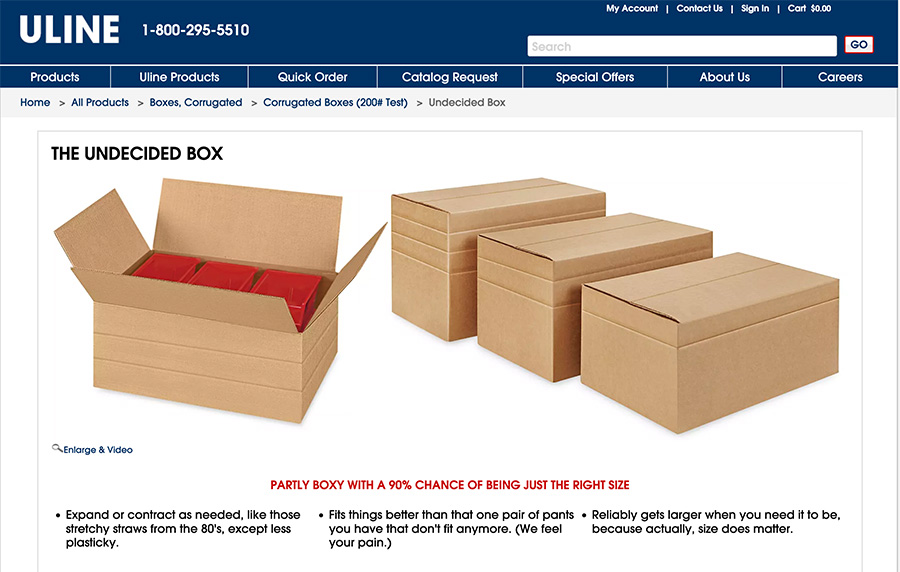Subscribe To Clarity Lab
If you like this issue of Clarity Lab, sign up below to get new issues full of tactics, trends, and news to help you grow your knowledge commerce business. It'll make your life better. Promise.
Clarity Lab Issue 100 – I’m Sorry For Your Dross.
read time: 5 minutes.
Hey friend!
It’s been a while, eh?
Many folks have written asking where I went and wondering if I’m still writing this newsletter. Wondering if I am, in fact, okay.
Concerns about my newsletter status became so frequent that I too started to write in asking myself the same questions.
So, I did what anyone would do in a situation like this: I held a press conference. My dog Blue was the only one who showed up, but he seemed interested because I mentioned treats, squirrels, walks, and bunny rabbits often, so I carried on.
To summarize the news I released to the press, I’m still here and I’m good. I needed to take a break from writing because my wife’s business needed some marketing help.
I’ve missed writing to you dearly, and I’m being serious.
If it made sense financially, I would do nothing but research and scour the internet for you, finding and bringing you the best signals in all the noise, and making short (or sometimes long), somewhat funny summaries of the useful things I find for you, and I’d write to you every day.
But enough about me. Let’s talk about some useful things I found for you.
The right snuff.
If you like long form deep dive podcast interviews about business (or if you think they’re boring and you need some help falling asleep some night), this is an interesting conversation between Ali Abdaal and Daniel Priestly.
Daniel has been on a guest podcast blitz lately. The guy is everywhere.
There’s a lot of good nuggets in the first half of this conversation about how to make $10k to $1 million per month, and it’s worth a listen for those good nuggets, at least the first half of the conversation anyway.
In that latter half of the interview, there’s some perspectives Daniel shares that didn’t land as well for me.
He made some comments about smaller solopreneur businesses being “lifestyle businesses.” When I heard that phrase, I paused the video, wagged my finger at him, and gave him a yellow card.
He then juxtaposed “lifestyle business owners” to “real” entrepreneurs who own multiple businesses and have large teams of employees doing all the actual work, and said that these kinds of businesses are “proper businesses.”
At this point I gave him a red card.
Me: *clears throat*…*cracks knuckles*
Okay…so, let’s unpack this a bit, shall we?
The advice he has for entrepreneurs who want to build what he calls “proper businesses,” is great for folks who want to build something big: a business that brings in tens of millions a year in revenue, has millions of dollars of expenses and payroll, and has dozens if not hundreds of employees.
But it hit me while listening to him: he’s an extrovert who wants to be out there hitting the pavement, shaking hands, and making big multi-million dollar deals everyday while his employees do “the grunt work.”
But what if you are, like me, an introvert who doesn’t want to do those things, who would prefer to dive into some books and write some things that can help people, rather than shaking hands and making deals?
What if you don’t want to manage a large team of employees and you just want to create things that help people…things you can make mostly alone with tools on your laptop?
What if a lifestyle business that makes $100,000 or $500,000 a year is enough for you and your family and you don’t want to live the hustle life, working 80 hours a week trying to win the lottery of a venture capital fueled tech startup exit?
It was then that it dawned on me: the majority of business and entrepreneurial advice you can find online is skewed towards extroverts.
A lot of the advice you hear comes from the tech startup world. Or it’s coming from people who are extroverted and enamored with the venture capital powered tech startup way of doing business, and they’re trying to take advice for that type of business and apply it to small online businesses.
This kind of advice comes from an industry that’s super horny for hyper fast revenue scaling, hockey stick growth charts, massive acquisitions, and huge windfall exits for the business owner and a small handful of the early employees with good stock options.
That’s a fine game to play for some people, but it’s not the game I want to play. I have more thoughts on this topic, but I’ll save them for possible future missives about Business Advice For Introverts™. (I’m kidding. The trademark paperwork hasn’t been fully processed yet.)
For now, I wanted to share this conversation between Ali and Daniel with you because there’s some good bits in there, but more importantly, so that you could try on the extrovert/introvert business advice goggles and see if that helps you find advice that lands better for you, whether you’re extroverted, introverted, or a vanilla chocolate swirl.
Brands But Funner.
Welcome to a new section of the newsletter, where I find products and brands that I think could use a little dash of wit in their brand messaging and I temporarily hack into their website to show their true branding potential.
Recent studies have shown that humor and a bit of wit in brand messaging can lead to significant revenue growth. More on that in future issues.
For now, let’s see what I can do with these cardboard boxes. (If you’re reading this on your phone, you’ll have to zoom in to see the text in the images. Sorry about that. It’s the internet’s fault.)
Before:

After:

See? That’s fun. And if Uline took a risk with their branding and tried something new with all of their product descriptions and copy on their website, making things more fun and human and relatable, I’d be willing to bet they’d make more sales.
Product descriptions and copy that have a dash of humor can instantly make your brand feel more human and friendly.
And making people smirk or giggle or even laugh while they’re on your website puts them in a good mood.
It literally changes their physiology and state of mind. And that? Makes people know, like, and trust you faster, which leads to more sales, more growth, and more time to read books.
I’m sorry for your dross.
As someone who had some great, lucky success that resulted from being well positioned for some search terms for several years, I continue to learn and watch what’s happening in the search engine optimization industry, sadly hoping that it’s not actually dying. That the things that used to work well in the SEO world up until 2 or 3 years ago aren’t actually dying and going away.
Unfortunately though, my friend, what we formerly knew as SEO is dying, and if you’re planning on spending some thousands of dollars and many months of time on SEO to get more traffic to your site, I want you to know what’s going on and what you can do instead.
The writing has been on the wall for several years now, but the message is getting bigger and more clear. At this point, the writing is in all caps. Let’s take a look at the signs:
- Google’s gigantic AI answer box (called SGE, or Search Generative Experience) is stealing human created content (yours and mine and everyone else’s), mashing it up and serving it as AI generated answers that keep searchers from having to click through to any websites for further information. Why? Because they want to keep people on the search results page. That’s where the ads are, which is Google’s main source of billions in revenue. If Google can answer search queries with their artificial intelligence engine for keyword phrases you used to rank for, or could rank for, expect a large drop in organic traffic to your site.
- Below the SGE box are all of the paid ad results mixed in with Google’s other boxes that take up space trying to answer questions without having people click through to websites like yours. Things like the “People also ask” box, or the Youtube video carousel, or the new “Discussions and Forums” section.
- The top 10 search results for many queries are dominated by websites owned by just 16 megacorporations. Those 16 companies own 588 brands/websites, and google sends most of their traffic to them. Don’t believe me? Take a look at the data.
- Google is prioritizing Reddit and other forum posts in search results, preferring to send traffic to forum posts on those sites when people are searching for reviews or looking for things like “the best…” of anything, whether it’s tv’s or shoes or rice cookers. This is one of the more painful nails in the coffin for anyone, like me, who used to write in-depth product reviews and make income from affiliate commissions for products I tested for days or years, and then recommended.
- Speaking of affiliate marketing, that’s another business model that used to work but is no longer working. The days of writing reviews or recommending products and doing a bunch of SEO work to beat your competitors is over. Here’s some data about that if you’re interested.
- If you want to compete with other people doing a lot of SEO on their sites and sites of their clients, you’re going to be up against a deluge of AI generated content that’s flooding the web right now. And all of that crappy, mediocre content can actually rank really well in search results. So, yeah, AI is changing the world of SEO from several different directions: Google’s integration of AI answers in search results, Google integrating more AI in their ranking algorithms, and people spam publishing thousands of AI generated crap articles every day.
Well shit. That’s all not very happy or funny.
So what’s the solution to getting around these problems with getting organic traffic from search?
Unfortunately, it’s looking like the two main options are pay-to-play (paid Google ads or paid ads on social networks like Facebook/Instagram) or focus on making Youtube videos and getting traffic from the second largest search engine on the planet before Google also ruins that search engine with too much AI.
————-
Speaking of AI, I have an update for you from my view of everything happening in the artificial intelligence space.
And no, it’s not as salty as you might think. I mean, I do get a bit salty around what’s happening as a result of AI flooding the web, but there are some very interesting things developing over there, and it may not be all bad.
I’d put my AI update here, but this newsletter is already long enough, so I’ll see you soon in the next issue!
Hope all is well with you in your world over there.
~Forest Linden
Introverted Architect of Wit
